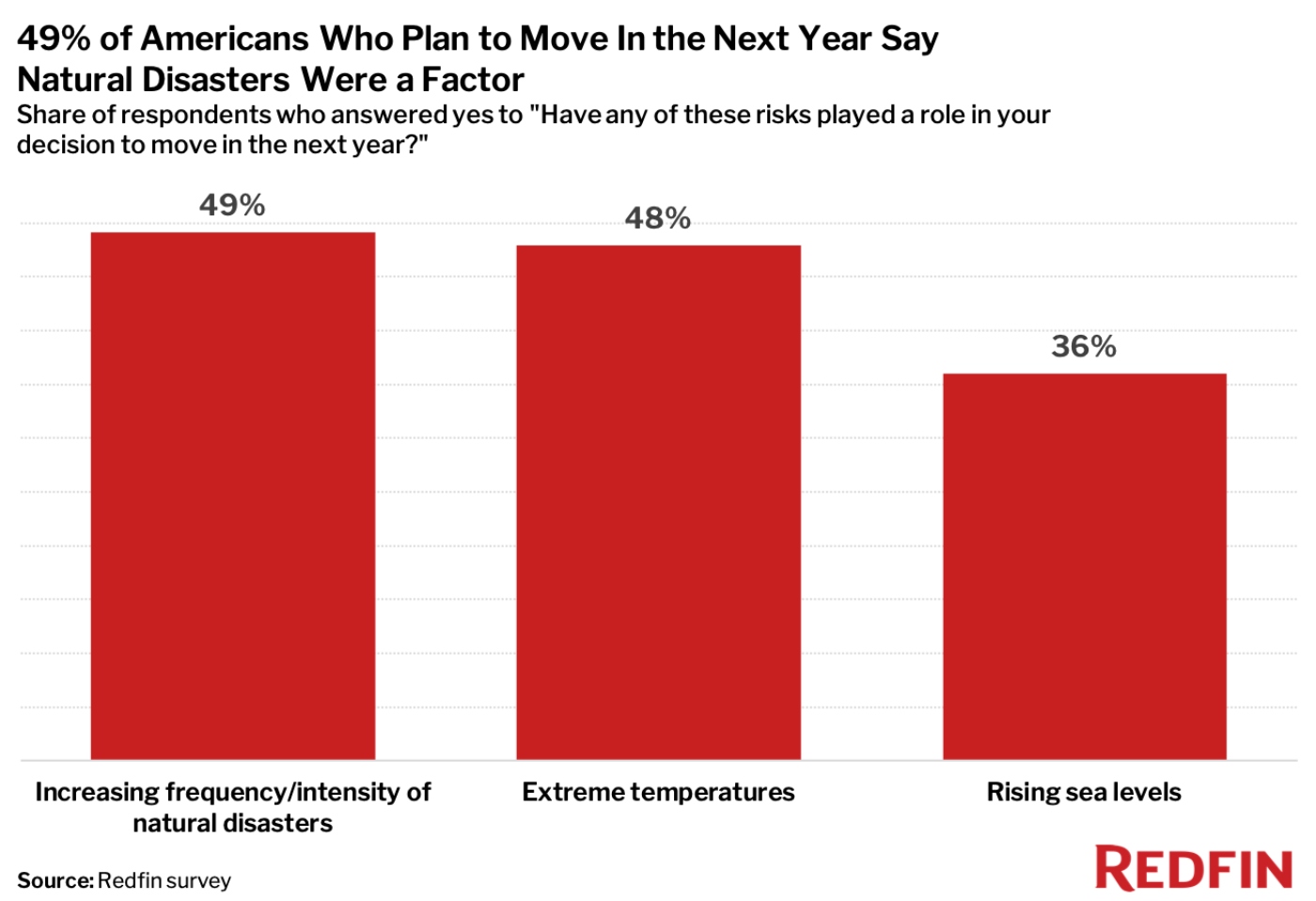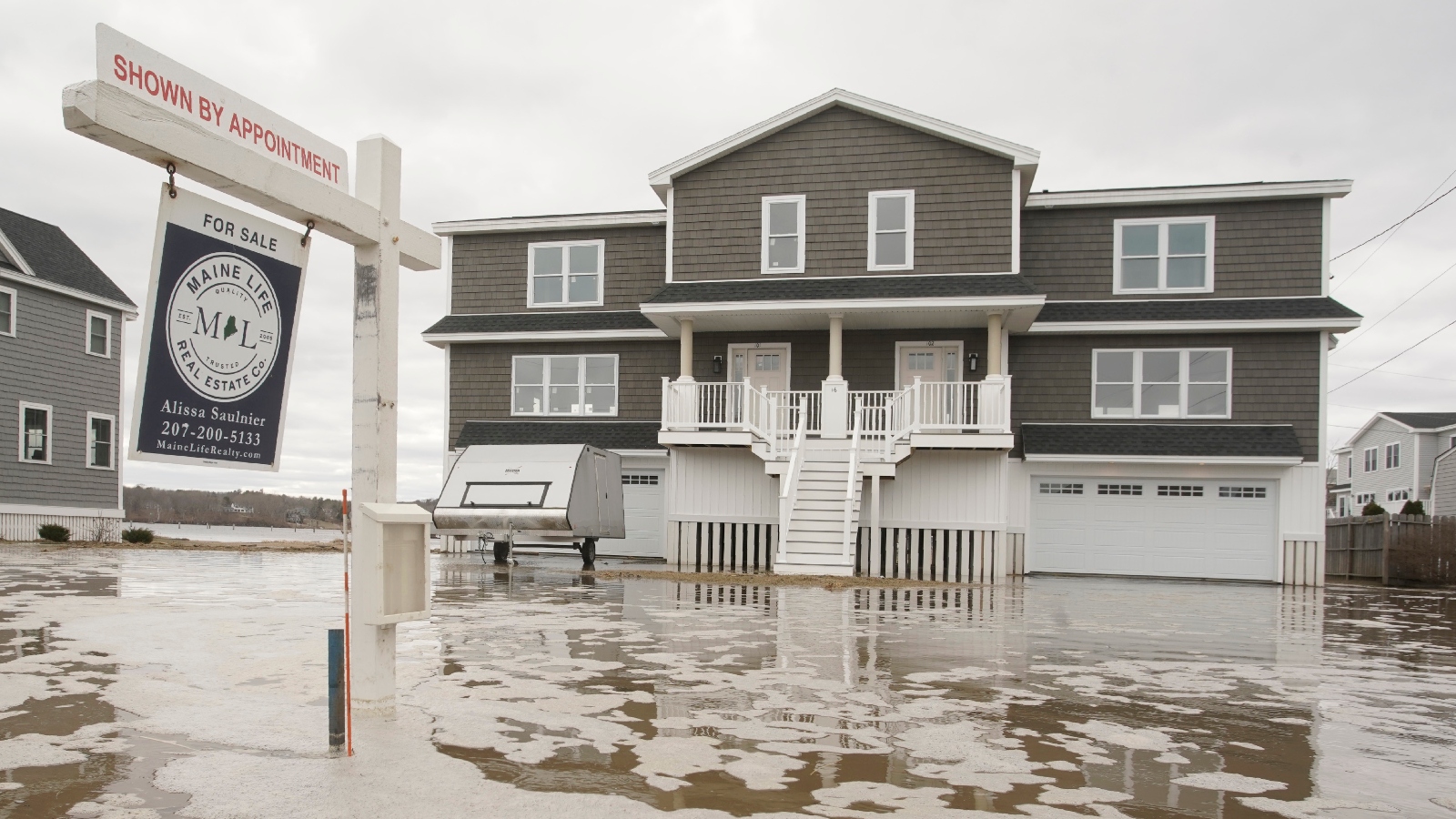House hunting in today’s world comes with a lot of decisions: Do you want to live somewhere urban or rural? How many bedrooms do you need? Are you okay living in a place where the streets frequently flood or the skies are blackened by wildfire smoke for weeks on end?
Climate change is causing many Americans to rethink where they want to live, according to a new survey conducted by real estate brokerage Redfin. The survey of 2,000 U.S. residents — conducted between February 25 and March 1 — reveals that about half of the 628 respondents planning to move in the next year are motivated in part by extreme temperatures or the increasing frequency and intensity of natural disasters. Three-quarters of all respondents said they would be hesitant to buy a home in a community facing climate risks, and about a quarter wouldn’t purchase property there even if it were more affordable.

Such buying trends have serious environmental justice implications. If people flock to the areas least impacted by climate change, prices in those communities will skyrocket because the homes are in higher demand, said Redfin’s chief economist Daryl Fairweather. That means lower-income individuals will increasingly only be able to afford property in areas plagued by dangerous climate risks. This story is already playing out in a number of coastal communities in South Florida, where sea-level rise is an imminent threat. The number of home sales in the region has steadily dropped since 2013, dragging down the once-high waterfront property prices. In Miami, lower-income, inland neighborhoods are becoming gentrified as wealthier residents scramble to escape rising waters.
“For lower-income people, they have to decide ‘Am I going to live somewhere at higher risk and be able actually to afford a house, or am I going to have to put more toward my housing costs to live somewhere with less risk?’” Fairweather told Grist.
Even if homeowners choose to save money by living in an at-risk area, rising insurance premiums may make these properties just as expensive in the long run, she said. Increases in flooding and wildfires have already prompted insurance companies to deny customers coverage in certain locations, and California homeowners in places at high risk of wildfires have seen premiums rise by as much as 500 percent.
The new survey from Redfin shows varying attitudes toward climate risks depending on respondents’ ages and where they currently live. Of those planning to move in the next year, people between 35 and 44 years old were most likely to factor in natural disasters, extreme temperatures, or rising sea levels into their decisions. Respondents between 25 and 34 also showed relatively high concern for climate risks in their decision to move, while those over the age of 45 were the least likely to factor it into their plans.
When the survey results were broken down by region, Midwesterners surfaced as the outlier — they were the least likely to cite climate risks as a factor in their homebuying decisions. Fairweather said this could be due to the fact that the Midwest has so far not experienced some of the more extreme effects of climate change, such as wildfires and hurricanes. That doesn’t mean global warming isn’t having an impact, though: The region has experienced an increase in heat waves, heavy downpours, and flooding in recent decades.
In the wake of the COVID-19 pandemic, now that many employees are not tied down to a physical office, more people are relocating to vacation destinations, suburbs, and more affordable cities like Austin, Phoenix, and Las Vegas. Fairweather herself did this: After she stopped working out of Redfin’s Seattle office, she moved her family to Wisconsin in order to escape the suffocating wildfire smoke that cloaked the West Coast this past summer.
“There’s going to be a lot of people who are able to now live where they want to live, as opposed to just where their job is,” Fairweather said. “Some people may decide to move because of climate risk, especially a big serious natural disaster, this coming year.”



